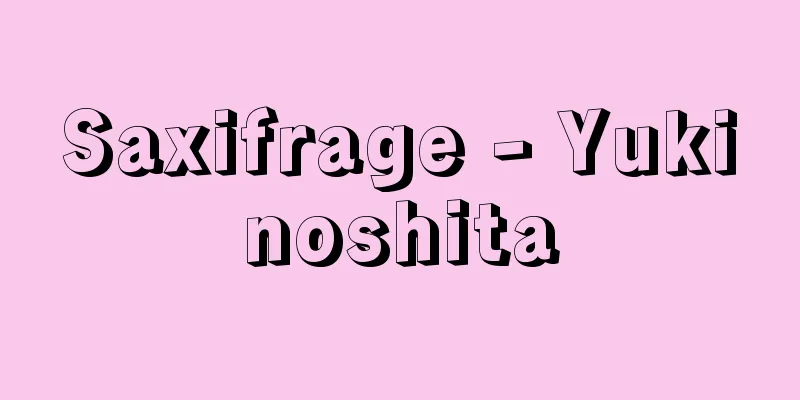Arimatsu tie-dye

|
This is a type of tie-dyeing of cotton produced in the Arimatsu area of Nagoya City, Aichi Prefecture. It is said that the technique was passed down by people who accompanied the feudal lord of Bungo (Kyushu) who was ordered to help with the construction of Nagoya Castle. The Owari Domain promoted this as a speciality product, and hand towels and yukata fabric were sold as souvenirs along the Tokaido. Together with Narumi tie-dye from the Narumi area, it has been designated as a traditional craft of the country as "Arimatsu-Narumi tie-dye." Source: About Shogakukan Digital Daijisen Plus Information |
|
愛知県名古屋市の有松地区で生産される木綿の絞り染め。名古屋城築城の際、手伝いを命じられた豊後(九州)の大名に付き従って当地にやってきた人々から技術が伝えられたものとされる。尾張藩が藩の特産品として奨励し、東海道の土産物として手ぬぐいや浴衣生地などが販売された。鳴海地区の鳴海絞とあわせ、「有松・鳴海絞」として国の伝統的工芸品に指定されている。
出典 小学館デジタル大辞泉プラスについて 情報 |
<<: Arimatsu-dyed sumo yukata - Arimatsu-dyed sumo yukata
Recommend
logo light
…Recently, in the airspace around airports, they ...
Olympic Academy
…The IOC has various committees that act as advis...
Royal Dutch/Shell Group
The world's second largest oil company after E...
Winter migration
…In the Northern Hemisphere, migration generally ...
Neomizaldus lewisi (English spelling) Neomizalduslewisi
...The sugarcane long-winged bug, Cavelerius sacc...
Founder - Kaiso
〘Noun〙① French. The first person to preach the tea...
Overrunning Zone - Overrunning Zone
…Of these, the parallel runway arrangement of = a...
Wataru Kawaguchi
...Stenographic methods have also been improved b...
Angkor Borei
... In the 6th century, the vassal state of Zhenl...
Pelecanoides urinator (English spelling)
…[Hiroshi Hasegawa]. … *Some of the terminology t...
Masturbation - Onanie (English) German
Masturbation, also known as handjob or onanism, r...
Hu drinking - Konju
(A variation of "Konju") The name of a g...
Katsuragi Shrine
...The name Kanegōzan comes from this mountain na...
Optimal control
A general control method for optimizing dynamic pr...
Low-price principle
It is an accounting method for valuing inventory a...









